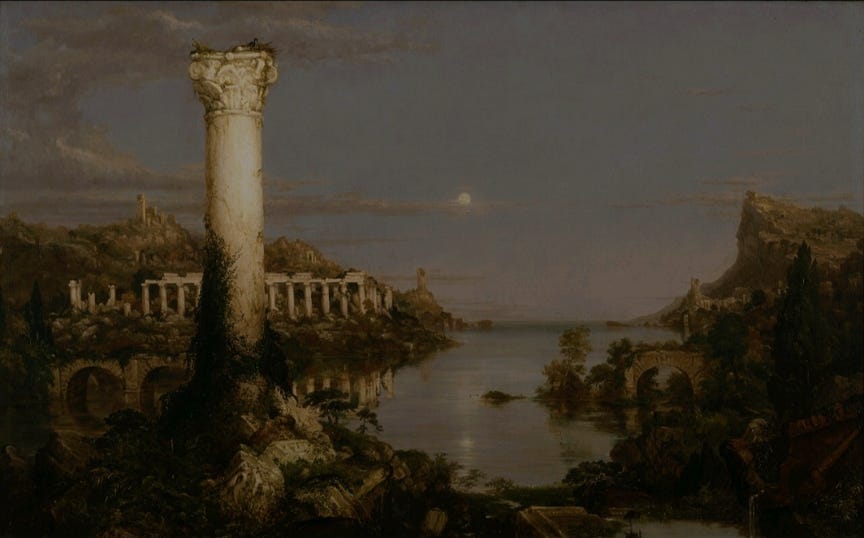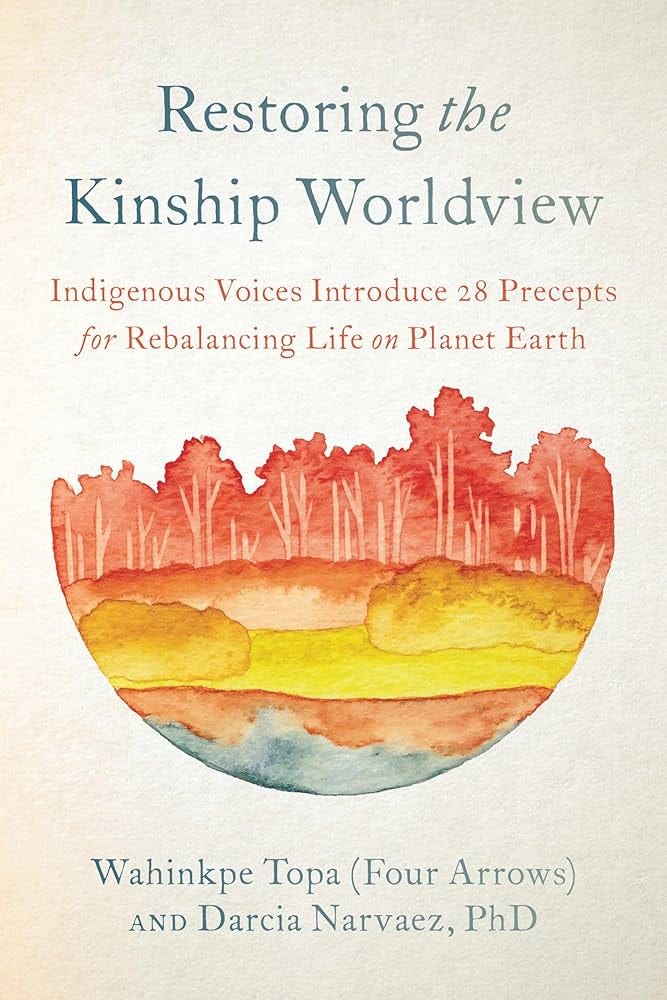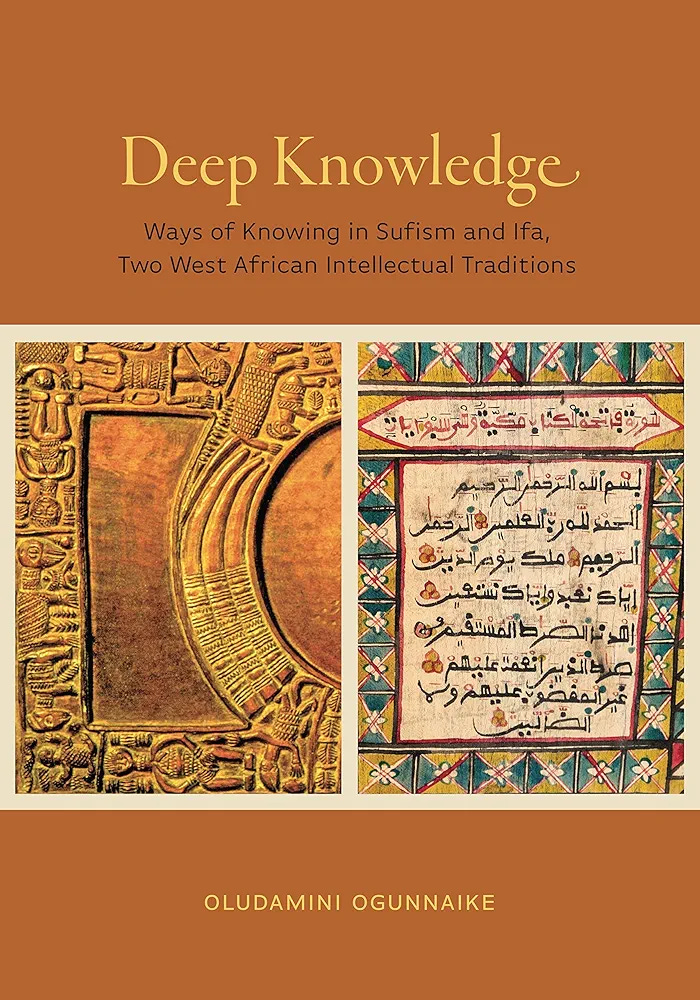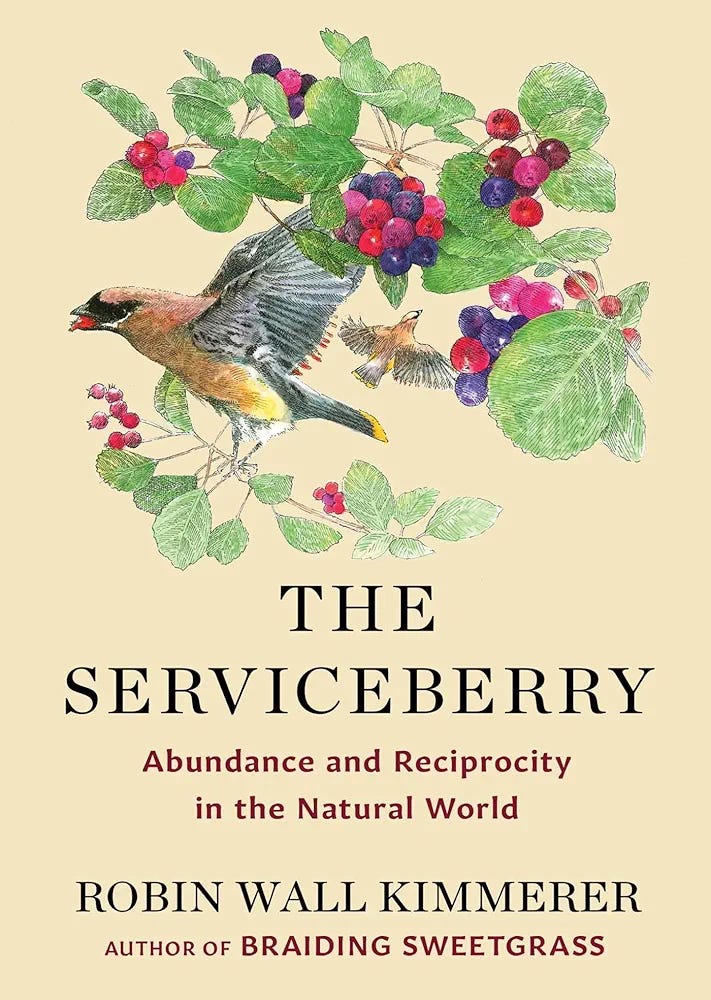This past year really feels like it was one of transition. It seems that everyone is aware that the world is shifting, and perhaps even collapsing. War is raging in many parts of the world. Resource extraction is only intensifying. Societies are becoming more polarized. Soils are eroding. Cities are crumbling.
Meanwhile, it seems that many people are awakening to this transition. I've seen references to the Metacrisis, the Second Renaissance, the Liminal Age, etc. More and more people are working to transcend the imposed political bifurcation. It has truly been a blessing and breath of fresh air to take part in global conversations that are reshaping how we think of ourselves, our place in this world, and our relationship to it. One of the intentions behind The Sufi Gardener is to invite you to take part in this conversation. This inner exploration that mirrors the forests, streams, oceans, and deserts. As we conclude the Christic year of 2024, I want to share some of the books that are shaping this conversation. My selection is limited to recent publications as I believe they represent the kinds of conversations we need to be having. Much of the content will be of benefit to all those who are seeking to make the world a better place.
The Way of Mary: Maryam, Beloved of God by Camille Helminsky
I recently picked this one up for my family as the world around us celebrated Christmas. The Way of Mary is a beautiful meditation on the spiritual life of Lady Mary, mostly from Christian and Islamic sources. Particularly striking is the mindset (or heartset) that Camille Helminsky invites the reader to take on. She invites us to build a relationship with Mary not by “reading about” but rather by “being with.” We tend to look at the world as if we are learning about the world instead of being with the world. In my own life, I'm learning to embrace with withness instead of the aboutness. Perhaps, that is a key to truly knowing.
Restoring the Kinship Worldview by Wahinkpe Topa (Four Arrows) and Darcia Narvaez
I came across Restoring the Kinship Worldview at the beginning of the summer. This book offers a poignant critique of the Western worldview while bringing indigenous perspectives from around the world at the forefront. It is a dialogue between writers, storytellers, and elders, both present and past, that show us how kinship—with the land, with one another, and with the more-than-human world—has been systemically eroded by modernity. Yet instead of simply criticising, the authors provide calls to action to aid us in restoring the kinship worldview.
Deep Knowledge: Ways of Knowing in Sufism and Ifa, Two West African Intellectual Traditions by Oludamini Ogunnaike
Ogunnaike’s detailed study of Tijani Sufism and the Ifa traditions is a very much welcomed addition to the intellectual world of comparative religious studies. I've always been interested in how Islam interacted with other traditions, especially those considered “primitive” by western anthropologists. Ogunnaike reveals that Islam, particularly the traditions of Sufism, compliment the local traditional forms of knowledge. Notably, he concludes that the two forms of knowledge can help us resist modernity’s hegemony of traditional ways of knowing. At the same time, he emphasises the opportunity offered by an increased global connectivity to preserve local forms of knowledge. He writes, “both traditions explicitly recognize a similar set of challenges of colonial and (post) colonial modernity, but both traditions - especially the Tijanis of the fayda - also emphasize the unique advantages of this latest dispensation. It is the ‘worst of times’ in terms of the material, cultural, intellectual, and spiritual assault of modernity and its associated ideologies, but it is also the ‘best of times’ - due to the increased connectivity and ease (in certain domains) that characterize modernity, and the special conditions of the fayda in Tijani Sufism.” (p.378) As an avid critic of modernity, this lesson is an important one to hold.
Hospicing Modernity: Facing Humanity's Wrongs and the Implications for Social Activism by Vanessa Machado de Oliveira
This book feels like a necessary companion for those grappling with the collapse of modern systems. Machado de Oliveira asks us to embrace "hospicing" modernity—not in resignation, but as an act of care and humility. As we think about the transition of worlds, she argues that we need to recognize the dying aspects of our current paradigms. Then we can create space for new, life-affirming systems to emerge.
The Serviceberry: An Economy of Abundance by Robin Wall Kimmerer
This slim yet profound work by Robin Wall Kimmerer is a poetic meditation on reciprocity and the gift economy. Through the lens of the humble serviceberry tree, Kimmerer explores how abundance is not measured by accumulation but by the relationships that sustain life. We need to transition from the scarcity mindset that pervades the modern world. Kimmerer reminds us that wealth lies in the bonds we nurture—with the land, with each other, and with the gifts we share.
The Curious History of Vegetables: Aphrodisiacal and Healing Properties, Folk Tales, Garden Tips, and Recipes by Wolf D. Storl
I picked this one up in Vancouver in the late Spring and was thoroughly delighted. In this book, Wolf Storl dives into the cultural, historical, and spiritual significance of vegetables. With his signature blend of storytelling, ethnobotany, and folklore, Storl uncovers the fascinating ways vegetables have been used throughout history. He shares insights on how vegetables were used as food, medicine, symbols, and sources of spiritual insight. For anyone interested in regenerative agriculture, permaculture, or simply connecting more deeply to the food we eat, this book is both informative and inspiring.
The Matter With Things: Our Brains, Our Delusions, and the Unmaking of the World by Ian McGilchrist
The last book on my list is very much paradigm-shifting. McGilchrist’s monumental work is as ambitious as it is profound. He explores the divide between the brain’s hemispheres, examining how the left hemisphere’s dominance has shaped modern thought, and not for the better. He calls for a return to the right hemisphere’s holistic, relational way of knowing, which he sees as vital for addressing the crises of our time. He argues that this was the way of the wise people of old, the saints, the sages, and the prophets. This books offers us a roadmap for how we might reconnect with the world in more meaningful ways.











Djazaka Allahu Gair for this beautiful list of books and your perspective on why they’re important. I’ve added a couple to my 2025+ reading list.